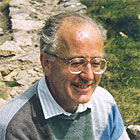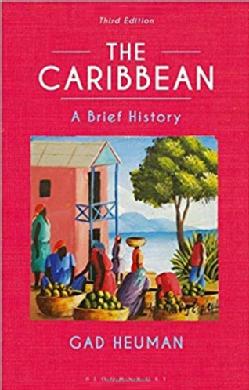History News
Professor Fred Reid
It is with great sadness that the Department of History announce the death of Professor Fred Reid.
Disability History Month: Fred Reid
Professor Fred Reid, Emeritus Professor and former Head of Department for History, features in the 13 November dated edition of 'insite', the Warwick staff hub, for Disability History month.
Fred, who was 14 years old when he went blind, is known for his work to support blind and disabled people across the UK. He and his wife Etta have even been presented with honorary Warwick degrees to recognise their efforts.
UK Disability History Month (UKDHM) is an annual event which aims to promote disabled people's rights and their struggle for equality now and in the past. This year, UKDHM will take place from 14 November – 20 December 2024. Every year, UKDHM focuses on a theme. This year, the theme is Disability, Livelihood and Employment.
Robin Okey (1942 - 2023): In memoriam
The History department is sad to announce the death of emeritus Professor Robin Okey. Robin taught in the department from 1966 until his retirement in 2007.
Robin Clifton: In memoriam
Robin Clifton, a founding member of the History department, has recently passed away. Bernard Capp and Bill Dusinberre remember his time in the Department.

RIP Robin Lenman, Emeritus Reader,
It is with great regret that the History Department announce the death of Emeritus Reader, Robin Lenman.
Dr Iain Smith, 1939-2021

It is with great regret that the History Department announce the death of Emeritus Reader, Dr Iain R. Smith, 1939-2021.
Memories of Iain may be found here. If you would like to submit your own, please contact Jane Mallin.
Humfrey Butters (1946-2019)
It is with sadness that we report the death of Humfrey Butters following a short illness. Those of us who knew him will have many memories of his many years of service in the department. It goes without saying that the Venice programme stands as an enduring reminder of his contributions to the university. He will be greatly missed. There will be a small family funeral followed by a memorial service later in the year. Some memories of Humfrey are gathered here.
The Caribbean: A Brief History

The Caribbean: A Brief History by Emeritus Professor Gad Heuman has been republished as a Third Edition by Bloomsbury.
In this new edition of his crucial introduction to Caribbean history, Gad Heuman provides a comprehensive overview of the region's history, from its earliest inhabitants to contemporary political and cultural developments. Topics covered include: - The Amerindians - Sugary and Slavery - Race, Racism and Equality - The Aftermath of Emancipation - The Revolutionary Caribbean - Cultures of the Caribbean This third edition has been updated to reflect the latest developments in the literature, and takes into account important recent events including the rapprochement between the U.S. and Cuba, the ongoing problem of climate change and the threat of the Zika virus. The companion website, which includes chapter questions, primary documents, a timeline and link to relevant websites, has also been updated with new material. The book considers not only of the political and social struggles that have shaped the Caribbean, but also provides a sense of the development of the region's culture. The Caribbean: A Brief History is ideal for all students seeking a clear and readable introduction to Caribbean history.
Details of all the monographs and edited collection of the Warwick University History Department's current academic staff are available online, and the details of all the monographs and edited collection of the Warwick University History Department's emeritus academic staff are also available online.
